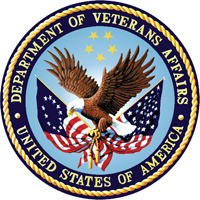A recent change to how the VA evaluates sleep apnea claims means veterans must now prove a qualifying breathing assistance device is medically required. The definition of a “qualifying breathing device” has also been extended to additional devices.
 Sleep apnea is one form of sleep disturbance. “Apnea” is defined as “transient cessation of respiration,” meaning the person has temporarily stopped breathing. Since breathing is an automatic process, the brain issues a command to wake up enough to unblock the air passage and breathe. And with a gasp, breathing begins again. This stop/start cycle can happen many times during the night. The adverse affects of sleep apnea range from feeling tired all day to having high blood pressure or experiencing a heart attack or stroke.
Sleep apnea is one form of sleep disturbance. “Apnea” is defined as “transient cessation of respiration,” meaning the person has temporarily stopped breathing. Since breathing is an automatic process, the brain issues a command to wake up enough to unblock the air passage and breathe. And with a gasp, breathing begins again. This stop/start cycle can happen many times during the night. The adverse affects of sleep apnea range from feeling tired all day to having high blood pressure or experiencing a heart attack or stroke.
In an adjudication manual change published April 18, 2016, Department of Veterans Affairs rating officials evaluating disability compensation claims for sleep apnea are now looking to answer a key question: Is the use of a qualifying breathing assistance device required by the severity of the sleep apnea? Prior to this change a veteran only needed to provide medical proof of a sleep apnea diagnosis when filing for disability compensation.
Whether the severity of the sleep apnea requires a breathing assistance device is a medical question that must be answered by a qualified medical professional. Veterans should now provide this documentation and show that a qualifying breathing assistance device is medically required when filing a disability claim for sleep apnea.
“Qualifying” breathing assistance devices are now defined as:
- Continuous positive airway pressure (CPAP) machine
- Automatic airway pressure device (APAP)
- Bilevel positive airway pressure device (BiPAP, also known as NIPPV or NIV)
- Nasopharyngeal appliances (Nasal dilators; nasopharyngeal stents)
- Oral appliances (mandibular advancement devices (MAD); tongue-retaining mouthpieces)
- Implanted genioglossal nerve stimulation devices
According to the VA adjudication manual update the veteran not actively using a medically required device as prescribed is not relevant to the success of a claim.
Sleep apnea claims are evaluated according to the criteria in Title 38, Code of Federal Regulation, Section 4.97. The VA diagnostic code for Sleep Apnea Syndromes (Obstructive, Central, Mixed) is 6847. Disability Ratings are determined based on the severity of the condition – from 0 to 100% – awarded in 10% increments.
- 100 percent: chronic respiratory failure with carbon dioxide retention or cor pulmonale; or requires tracheostomy
- 50 percent: requires use of breathing assistance device such as continuous airway pressure (CPAP) machine
- 30 percent: persistent daytime hypersomnolence
- 0 percent: asymptomatic, but with documented sleep disorder breathing
References:
- 38CFR4.97
- VA claims Adjudication Manual M21-1, Part III, Subpart iv, Chapter 4, Section D updated April 18, 2016
